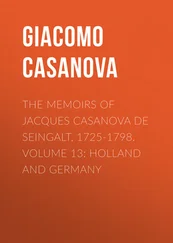Emile Dillon - England and Germany
Здесь есть возможность читать онлайн «Emile Dillon - England and Germany» — ознакомительный отрывок электронной книги совершенно бесплатно, а после прочтения отрывка купить полную версию. В некоторых случаях можно слушать аудио, скачать через торрент в формате fb2 и присутствует краткое содержание. Жанр: foreign_antique, foreign_prose, на английском языке. Описание произведения, (предисловие) а так же отзывы посетителей доступны на портале библиотеки ЛибКат.
- Название:England and Germany
- Автор:
- Жанр:
- Год:неизвестен
- ISBN:нет данных
- Рейтинг книги:3 / 5. Голосов: 1
-
Избранное:Добавить в избранное
- Отзывы:
-
Ваша оценка:
- 60
- 1
- 2
- 3
- 4
- 5
England and Germany: краткое содержание, описание и аннотация
Предлагаем к чтению аннотацию, описание, краткое содержание или предисловие (зависит от того, что написал сам автор книги «England and Germany»). Если вы не нашли необходимую информацию о книге — напишите в комментариях, мы постараемся отыскать её.
England and Germany — читать онлайн ознакомительный отрывок
Ниже представлен текст книги, разбитый по страницам. Система сохранения места последней прочитанной страницы, позволяет с удобством читать онлайн бесплатно книгу «England and Germany», без необходимости каждый раз заново искать на чём Вы остановились. Поставьте закладку, и сможете в любой момент перейти на страницу, на которой закончили чтение.
Интервал:
Закладка:
The execution of those grandiose schemes was facilitated by the easy access which Germany had to the principal markets of the globe. One of the main objects of her diplomacy had been to break down the tariff barriers which would have reserved to the great trading empires the main fruits of their own labour and enterprise. By the Treaty of Frankfort the French had been compelled to confer on Germany the most-favoured-nation clause, thus entitling her to enjoy all the tariff reductions which the Republic might accord to those countries with which it was on the most amicable terms. British free trade opened wide the portals of the world’s greatest empire to a deluge of Teuton wares and to a kind of competition which contrasted with fair play in a degree similar to that which now obtains between German methods of warfare and our own. Russia, at first insensible to suasion and rebellious to threats, endeavoured to bar the way to the economic flood on her western frontiers, but during the stress of the Japanese war she chose the lesser of two evils and yielded. The concessions then made by my friend, the late Count Witte, to the German Chancellor, drained the Tsardom of enormous sums of money and rendered it a tributary to the Teuton. But it did much more. It supplied Germany with a satisfactory type of commercial treaty which she easily imposed upon other nations. Germany’s road through Italy was traced by the mistaken policy of the French Government which, by a systematic endeavour to depreciate Italian consols and other securities, drove Crispi to Berlin, where his suit for help was heard, the Banca Commerciale conceived, and commercial arrangements concluded which opened the door to the influx of German wares, men and political ideals.
A few years sufficed for the fruits of this generous hospitality to reveal themselves. The influx of wealth and the increased population helped to render the German army a match for the combined land forces of her rivals, a formidable navy was created, which ranked immediately after that of Great Britain, and a large part of Europe was so closely associated with, and dependent on, Germany that an extension of the Zollverein was talked of in the Fatherland, and a league of European brotherhood advocated by the day-dreamers of France and Britain. The French, however, never ceased to chafe at the commercial chain forged by the Treaty of Frankfort, but were powerless to break it, while the British lavished tributes of praise and admiration on Germany’s enterprise, and construed it as a pledge of peace. Russia, alive to the danger, at last summoned up courage to remove it, and had already decided to refuse to extend the term of the ruinous commercial treaty, even though the alternative were war. That was the danger which stimulated the final efforts of the Kaiser’s Government.
Thus the entire political history of Entente diplomacy during this war may be summarized as a series of attempts on the part of the Allies to undo some of the effects of the masterstrokes executed by Germany during the years of abundance which she owed to the favoured-nation clause, British free trade and kindred economic concessions. Interpenetration is the term by which the process has been known ever since Count Witte essayed it in Manchuria and China.
The German procedure was simple, yet effective withal. Funds were borrowed mainly in France, Britain, Belgium, where investors are often timid and bankers are unenterprising. And then operations were begun. The first aim pursued and attained was to acquire control of the foreign trade of the country experimented on. With this object in view banks of credit were established which lavished on German traders every help, information and encouragement. Men of Teuton nationality settled in the land as heads of firms, as clerks without salary, private secretaries, foremen, correspondents, and rapidly contrived to get command of the main arteries of the economic organism. German manufactures soon flooded the country, because those who undertook to import them could count on extensive credit from the institutions founded with the money of the very nations whose trade they were engaged in killing. In this way the competition, not only of all Entente peoples but also of the natives of the country experimented on, was systematically choked. And the customers of these banks, natives as well as Teutons, became apostles of German influence.
Insensibly the great industrial concerns of the place passed into the possession of German banks, behind which stood the German empire. A nucleus of influential business people, having been thus equipped for action, incessantly propagated the German political faith. German schools were established and subsidized by the Deutscher Schulverein , clubs opened, musical societies formed, and newspapers supported or founded, to consolidate the achievements of the financiers. On political circles, especially in constitutional lands, the influence of this Teutonic phalanx was profound and lasting.
In all these commercial and industrial enterprises undertaken abroad for economic gain and political influence, the German State, its organs and the individual firms, went hand in hand, supplementing each other’s endeavours. The maxim they adopted was that of their military commanders: to advance separately but to attack in combination. Not only the Consul, but the Ambassador, the Minister, the Scholar, the Statesman, nay the Kaiser 1 1 The Kaiser is one of the largest shareholders in the great mercury mines of Italy.
himself, were the inspirers, the partners, the backers of the German merchant. Marschall von Bieberstein once told me in Constantinople that his functions were those of a super-commercial traveller rather than ambassadorial. And he discharged them with efficiency. Laws and railway tariffs at home, diplomatic facilities and valuable information abroad smoothed the way of the Teuton trader. Berlin rightly gauged the worth of this pacific interpenetration at a time when Britons were laughing it to scorn as a ludicrous freak of grandmotherly government. To-day its results stand out in relief as barriers to the progress of the Allies in the conduct of the war.
Of this ingenious way of enslaving foreign nations unknown to themselves, Italy’s experience offers us an instructive illustration. The headquarters of the German commercial army in that realm were the offices of the Banca Commerciale in Milan. This institution was founded under the auspices of the Berlin Foreign Office, with the co-operation of Herr Schwabach, head of the bank of Bleichröder. Employing the absurdly small capital of two hundred thousand pounds, not all of which was German, it worked its way at the cost of the Italian people into the vitals of the nation, and finally succeeded in obtaining the supreme direction of their foreign trade, national industries and finances, and in usurping a degree of political influence so durable that even the war is supposed to have only numbed it for a time.
Between the years 1895 and 1915 the capital of this institution had augmented to the sum of £6,240,000, of which Germany and Austria together held but 2½ per cent., while controlling all the operations of the Bank itself and of the trades and industries linked with it.
The Germans, as a Frenchman wittily remarked, are born with the mania of annexation. It runs in their blood. And it is not merely territory, or political influence, or the world’s markets that they seek to appropriate. Their appetite extends to everything in the present and future, nay, even in the past which they deem worth having. It is thus that they claim as their own most of Italy’s great men, such as Dante, Giotto, Leonardo da Vinci, Botticelli, Galileo, and it is now asserted by a number of Teuton writers that Christ Himself came of a Teutonic stock.
German organisms, as well as German statesmen, display the same mania of annexation, and the Banks in especial give it free scope. German banks differ from French, British and Italian in the nature, extent and audacity of their operations. It was not always thus. Down to the war of 1870 their methods were old-fashioned, cautious and slow. From the year 1872 onward, however, they struck out a new and bold course of their own from which British and French experts boded speedy disaster. Private enterprises were turned into joint stock companies, the capital of prosperous undertakings was increased and gigantic operations were inaugurated. Between the years 1885 and 1889 the industrial values issued each year reached an average of 1,770 million francs; between 1890 and 1895 the average rose to 1,880 millions, and from 1896 to 1900 it was computed at 2,384 millions. 2 2 Cf. L’Invasione tedesca in Italia . Ezio M. Gray. Firenze.
Интервал:
Закладка:
Похожие книги на «England and Germany»
Представляем Вашему вниманию похожие книги на «England and Germany» списком для выбора. Мы отобрали схожую по названию и смыслу литературу в надежде предоставить читателям больше вариантов отыскать новые, интересные, ещё непрочитанные произведения.
Обсуждение, отзывы о книге «England and Germany» и просто собственные мнения читателей. Оставьте ваши комментарии, напишите, что Вы думаете о произведении, его смысле или главных героях. Укажите что конкретно понравилось, а что нет, и почему Вы так считаете.












